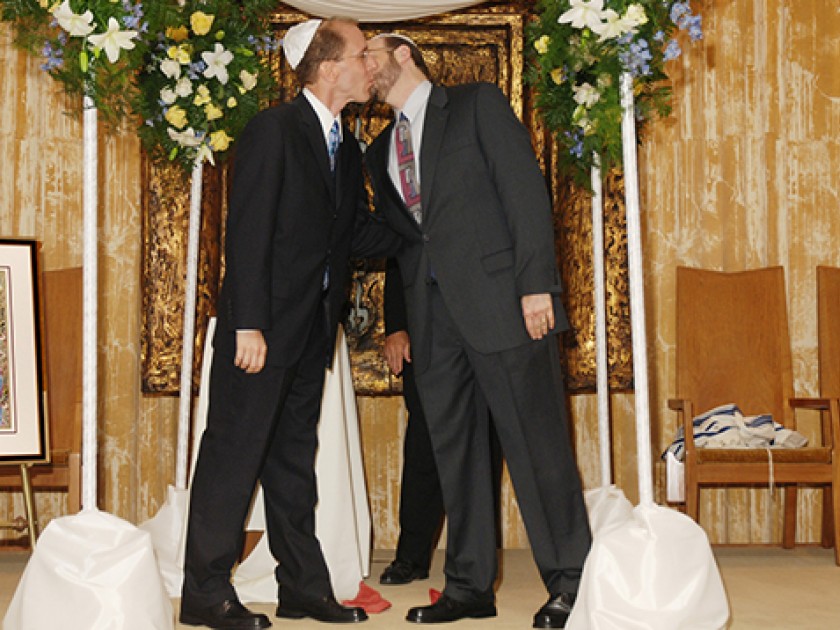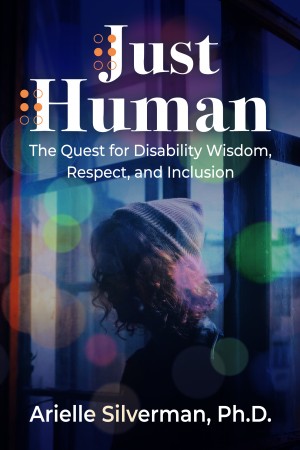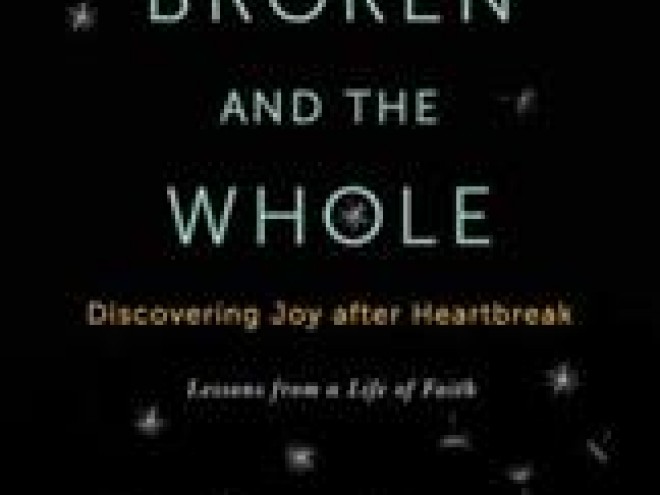
Kenny Fries is the author of the recently published memoir In the Province of the Gods. He will be blogging here all week as part of Jewish Book Council’s Visiting Scribe series.
At a dinner party soon after I moved to Berlin, a German guest recounted the story of his struggle to restore the bomb-battered grave of his grandfather at the Jewish Cemetery in Weissensee. He regaled the dinner guests, telling us about his phone call to the cemetery administrator, who told him the requirement that all new gravestones are required to quote scripture.
“But my father wasn’t a believer,” he complained to the administrator. “He wouldn’t have wanted scripture, Jewish or otherwise, on his tombstone. He was a Communist.”
“Make up your mind,” demanded the administrator. “Was your grandfather a Jew or a Communist?”
The story got a good laugh. I laughed, too. But I also thought about my own intersecting identities. I am disabled, gay, and Jewish. A former boyfriend has called me “The Nazi Trifecta.”
In Berlin, where I’ve lived for the past three years, I’m often asked what it’s like to be a Jew living in Germany. In fact, after I presented my research on Aktion T4, the Nazi program to kill disabled people, at a conference of young American Fulbright student grantees, I was sought out not because the students wanted to ask about this crucial aspect of disability history, but because the Jewish students wanted to talk to another Jew.
“None of the Jews in Rostock speak English,” one student told me. “I went to the synagogue, but everyone spoke either German or Russian.” This didn’t surprise me since the second language for those who grew up in what was communist East Germany was Russian, not English.
Only in Germany have I been asked if it’s more difficult to be disabled, gay, or Jewish. And, in Germany, this is a weighted question because of the intertwined fates of those who were imprisoned, subjected to forced labor in concentration camps, and killed in extermination camps.
Beneath this question lurks not only curiosity about how a life may be lived as a disabled person, a gay man, or a Jew, alone or in combination, but also reveals that to my interlocutors all three identities are seen as pejorative. And the reason for this is because of the long history of misrepresentation and misunderstanding, as well as the criminalization, of the disabled, gays, and Jews.
Previous to living in Germany, I spent time living in Japan. Missing bones in my legs when I was born, I have become accustomed to people staring at me in public places. But when I arrived in Japan, I was surprised that I was treated as different because I was a gaijin, a foreigner, rather than because of my shorter, differently shaped legs. My walking with a limp, my use of a cane and specially molded orthopedic shoes to get around, didn’t attract much attention.
Disabled since birth, I had never considered being looked at as “other” because of anything but my disability. If I’m not seated, one look at me, and someone knows I’m disabled. This isn’t the case for all people with disabilities. There are many invisible disabilities that don’t attract attention. My other identities are not visibly noticeable. It would take more than walking down the street for someone to know I am gay or Jewish. Perhaps it is this ability to control, in certain circumstances, my gayness or Jewishness, that separates my disability from the other two major identities I claim.
In Nazi Germany there were many assimilated Jews who didn’t “look Jewish” or “act Jewish.” Nevertheless, once revealed as Jewish by neighbors, or the Gestapo, or the requirement to register as Jews, they were subjected to the same fate as Jews who wore traditional Orthodox clothing. Similarly, many gay Germans who didn’t “look gay” or “act gay” were sent to prison and concentration camps after being snitched on, or blackmailed, or discovered in flagrante. If I had been alive during the Third Reich, all I would have had to do was walk down the street and the authorities would have known I was disabled. Perhaps my inability to pass as nondisabled would have made me an earlier target of persecution.
It is difficult to explain this on the spot to those who blithely ask me, “What’s more difficult: being disabled, gay, or Jewish?” I could tell them I think different oppressions, however similar, can’t be quantified. Or ask if they’ve considered why they’re asking this question. But after the dinner party story about the grave at the Jewish cemetery, I found a way to deflect this question.
“If only I were a Communist,” I now reply.
Kenny Fries’s new book is In the Province of the Gods, which received the Creative Capital literature grant. His other books include The History of My Shoes and the Evolution of Darwin’s Theory and Body, Remember: A Memoir. He edited Staring Back: The Disability Experience from the Inside Out. He was a Creative Arts Fellow of the Japan‑U.S. Friendship Commission and the National Endowment for the Arts, and twice a Fulbright Scholar (Japan and Germany). He teaches in the MFA in Creative Writing Program at Goddard College.
Image: Flickr/anna and liz
Kenny Fries’s new book is In the Province of the Gods, which received the Creative Capital literature grant. His other books include The History of My Shoes and the Evolution of Darwin’s Theory and Body, Remember: A Memoir. He edited Staring Back: The Disability Experience from the Inside Out. He was a Creative Arts Fellow of the Japan‑U.S. Friendship Commission and the National Endowment for the Arts, and twice a Fulbright Scholar (Japan and Germany). He teaches in the MFA in Creative Writing Program at Goddard College.



